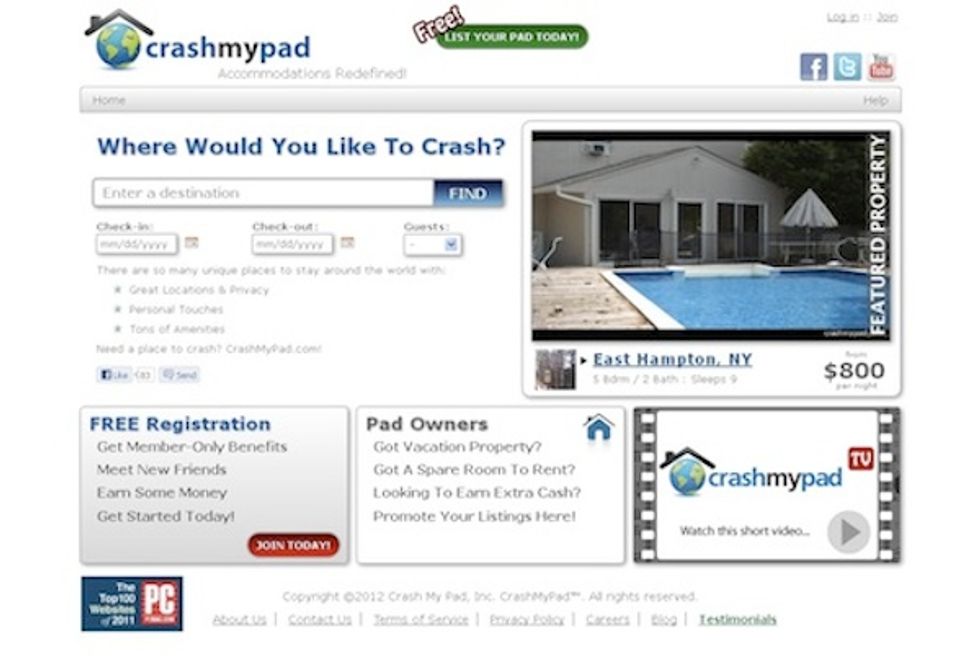“We’re just two guys being scrappy out there among the big boys,” is how John Dale and Dave Evans describe themselves and their tiny venture, CrashMyPad.
This site is an alternative to the much better known Airbnb and Homeaway, i.e., a p2p marketplace for short-term property rentals.
“We think they’ve just scratched the surface, as there are millions of potential units out there,” says Evans. “Our focus is to treat every host as a small business owner. We help them build out their business in a high-touch way.”
“When a customer lists a new property on our site, I reach out to them, talk to them, find out what they like and don’t like,” explains Dale. “I’ll walk them through our site and explain the service. It’s a very hands-on approach.”
So far the Palo Alto-based service, which launched last August, has attracted listings in Texas, California, New York, Boston and Montreal, with some properties in Hawaii, Jamaica, Florida and New Jersey as well.
The types of rentals listed include rooms, houses, condos and vacation properties. It’s a way for adventurous travelers to “live like a local,” notes Dale.
As with other p2p marketplaces, hosts and guests have profile pages, and can review each other, as part of the reputation basis and trust-building that makes this kind of collaborative consumption model work.
Although the company does not require users to do so, it prefers they sign in via Facebook Connect, which enhances the identity verification process and draws in their social graph information.
The way it works is when a user finds a property she likes, she reserves it with a valid credit card. The host is then informed and has 48 hours to confirm the rental, or the reservation expires.
“At the point that a guest places the reservation, if they do not yet have a complete profile, we contact them and urge them to complete it,” says Dale.
As for the payment process, CrashMyPad waits for 24 hours after the guest checks in, and if nothing seems awry, the payment goes through to the host.
Afterwards, the reviews and/or comments about each other are added to the host and guest profile pages.
The company follows standard industry practices by charging the guest 10 percent of the rental and the host 3 percent. It also will collect any damage deposit or cleaning fee on behalf of the host, thereby providing a complete financial solution to the transaction.
“Most of our travelers are in their 20s and 30s,” adds Dale. “Staying in a room in someone's house has more of the feel of traveling by hostel and they are comfortable with that.
“It’s still such a new market that it will take time for people to get used to traveling this way. But by the time (the Millennials) are in the 40s, this will just have become part of how society works. Over the long term, we are certain people will travel this way.”





















